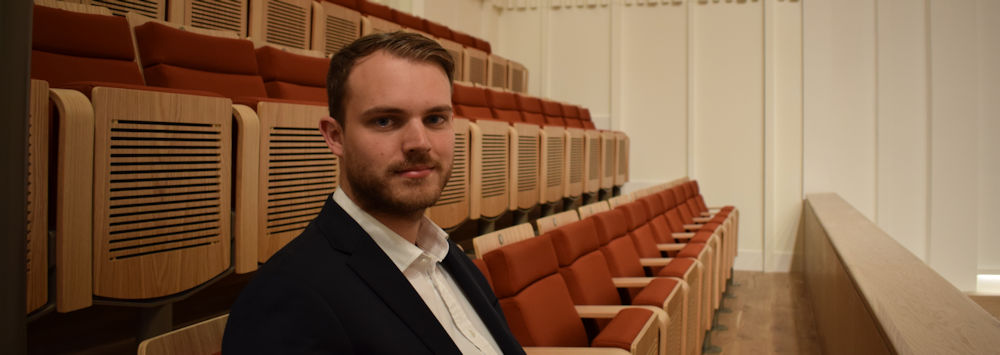Q. As the inaugural Artistic Director, what is your vision for the Tung Auditorium?
This concert hall will be a phenomenal addition to the University campus and will naturally fulfil a number of roles. It will be a space for teaching and learning, central to the delivery of the Music Department’s programmes. It will also become a cultural hub for all students on campus as it will host rehearsals, masterclasses and talks. However, my ambition, which is shared with colleagues, is to simultaneously operate a public venue which delivers a similar level of customer experience to other prestigious concert halls in the region.
Q. What kind of programme can audiences expect?
This will be the fourth venue in my career with acoustics specified by Arup, so I know that the Tung will deliver a remarkable audience experience for classical chamber music. However, the ingenuity of design means that the acoustics can be adjusted to accommodate larger groups, with and without amplification. A well-rounded programme for me would include traditional and contemporary classical music, jazz, folk, singer songwriters, electronica and spoken word events. Many performances will involve students, but equally we would look to present high profile visiting artists and local ensembles in a varied programme to attract a range of audiences.
Q. How will the Centre champion the creativity of artists and performers?
There are several elements to this question. Firstly, having a state-of-the-art acoustic means that there is nowhere to hide if your intonation is not perfect, so performers must rise to meet this challenge! Secondly, I view these venues as instruments in their own right, as much part of the performance as the players. Additionally, the technical spec is such that the surround sound PA will offer huge potential for electronic and multi-media composition. Combining all of this in a progressive programme will hopefully inspire the best creativity from all involved.
Q. What opportunities will there be for students to get involved in the Tung?
I am keen for the public concerts and events programme to have something of interest to students as well as the general public. Some students will access the space through teaching, rehearsing and performing, and there could be links with student societies offering access to students from across the University. As well as this, there are plans to involve students on placements covering different aspects of artistic planning and venue management, which can now be facilitated entirely in house. I am hopeful that there will be employment opportunities for recent graduates too, delivering relevant experience and industry skills whilst also supporting venue operation.
Q. How will the Centre and the Tung Auditorium support and celebrate diversity within the Sector?
A diverse programme will draw a diverse audience, but there is much more to it than this. Thinking about the way in which artists, repertoire and ideas are presented, it is important that there is diversity on stage as well as offstage. Working with local partners will be key, as the Centre can offer new opportunities to build on the great work that established organisations are already doing.
Q. Why is philanthropy important for a project like this, and why now particularly?
In my experience it would be impossible to create and sustain this sort of specialist facility without the incredible generosity of supporters. High specification concert halls are not just big rooms with seats in them, everything is designed with the acoustics in mind, from the types of materials used, the way walls are constructed to attenuate external noise and the asymmetrical detailing which diffuses the sound in just the right way… This complexity cannot be achieved without the right financial support, however it then becomes an investment for decades of future students, performers and audiences.
Q. As an UNESCO City of Music, how important is the Centre for Liverpool?
What’s great about this building is that it fills a niche in the city’s musical ecology. There are many wonderful and culturally significant venues in Liverpool with long histories, but there is nothing else in the region of this particular size, that will deliver this experience. I would be looking to complement rather than compete with other venues and arts organisations to present a city-wide offer that benefits students, local audiences and hopefully people new to the city too.
Q. And finally, do you have a favourite song or piece of music?
I could probably narrow it down to my top 100? The trouble with having such a varied taste is that my favoured soundtrack will change constantly. In a typical day I could be listening to Gesualdo, Bach, Mozart, Mahler, Steve Reich, Björk, Elbow, Laura Marling, Aphex Twin, Snarky Puppy, Moses Boyd, Ella Fitzgerald, John Grant, Bellowhead and then something completely different the next…
Back to: Yoko Ono Lennon Centre
